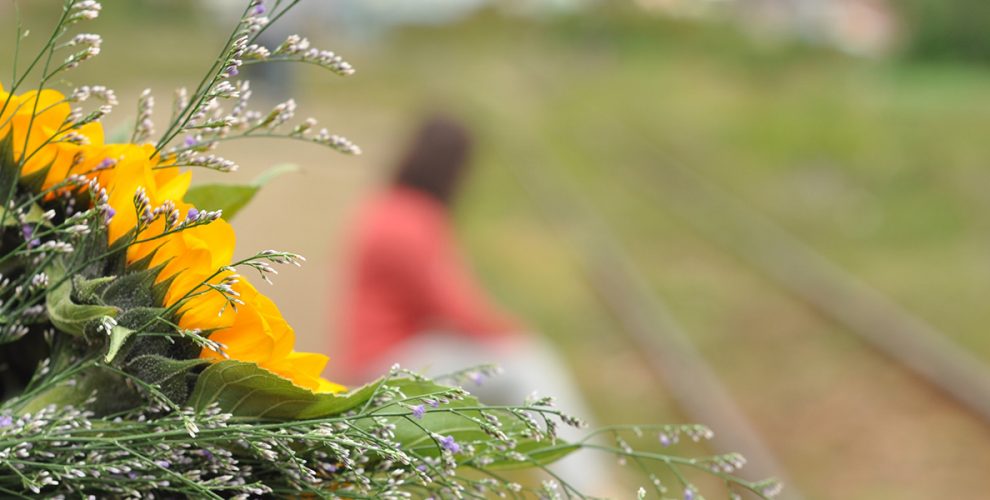This piece is a submission by Kristy Tan.
My Early Pregnancy Miscarriage
There are moments in life when time stops. Sometimes it stops in a good way, like when we realise we have met the person we want to spend the rest of our lives with. Other times in hard ways, when that person we love is gone from our lives.
I have experienced both these moments, but not just in a romantic sort of way.
I experienced them as a Mum does when she loses her baby.
Going through love and loss
Time stopped for me when I found out I was pregnant for the first time. It was my 28th birthday and the two lines on the pregnancy stick brought me more joy than I could imagine. I was suspended in happiness.
But two months later, I started spotting. During the ultrasound scan, there was no more heartbeat. I remember it like it was yesterday. The dim room, the doctor’s serious but caring tone, my husband’s tears. In that moment, time stopped again—but this time for much longer. I couldn’t get it to move. I couldn’t get myself to move.
Struggling to grieve
After the miscarriage, I went through the daily motions of getting up, going to work, doing the chores, but I felt like I was just a shell. Outwardly, the world continued to spin madly on, but inside, everything had crashed to a halt. I was grieving, or struggling to grieve, and I didn’t know how to get through it all.
One of the hardest things about grief is that you don’t know what to expect. Events affect us all differently. We often make the mistake of ranking these events and the impact they have on a person according to their perceived severity. For example, loss of a hamster; small severity, small grief. Loss of a parent; big severity, big grief.
And while there may be some general correlation, it would be detrimental to expect everyone to respond the same way to a certain event. We experience and value things, people and dreams differently. We are human after all; organic and not mechanical.
In my case, everything was harder because I was only pregnant for two and a half months. It was clear that people didn’t expect me to take my early pregnancy miscarriage so badly. Comments like, “Oh you’re still young. You can try again,” were especially painful. They dismissed the fact that something terrible had happened and that I was hurting. Other comments like “At least you weren’t further along,” made me feel like I shouldn’t be grieving, and worse, that I didn’t have that right.
Also read:
Grieving in our own way
For a long time, I struggled with that. The assumption that your love for a baby is different depending on how far along you are. Like you’re meant to ration that love to increase with time. Maybe you are, but I didn’t know how to do that. I didn’t know how to love just a little, just in case the baby died. I was all in, and maybe that’s why it hurt so badly. A person I loved, and loved fully, had died.
I could understand that other people may have responded very differently to a similar loss. I know of mums who do not feel like a miscarriage affected them much and I respect that. Yet I know of others who struggled to function till all the tears were cried, all the questions were asked and all the processing was done.
Maybe what I’m trying to get at is that we all have the right to grieve our loss the way we need to. There isn’t one right way, and to expect a person to be less sad or move on before they are ready is to take away that right from them.
Accepting the reality of a loss
The last stage of grief according to the Kübler-Ross model is acceptance. It’s about coming to terms with the event and the loss that was experienced. And while it is crucial to accept the reality of a loss, it’s also important to accept who I was and who I was becoming, while I grieved.
I needed to be comfortable with the grieving me. Allowing myself to feel the pain instead of masking it, even when people didn’t seem to understand. I learnt to be okay with seeing a counsellor to talk things through. I started validating the angry and depressed person I was as I asked why. All of this was part of my healing process.
Sure enough, as I practiced acceptance of my early pregnancy miscarriage and myself, I could start moving forward. Life began again. We grow through what we go through. My experience of grief made me more self-aware but also more empathetic to the losses of others and how they process their grief.
My Early Pregnancy Miscarriage Taught Me There Is No Right Way To Grieve
So if you find yourself experiencing loss and navigating grief, be kind to yourself. Know that what has happened is painful and how you feel is valid. Give yourself the space and time you need despite what others may expect of you. Be your grieving self. Make room for the yucky feelings and when you need to, reach out.
And if you know someone who is grieving, don’t rush them. Instead, choose to understand instead of judge. Support them in practical ways. Listen patiently, hold gently, affirm genuinely and when they are ready, follow their lead and walk with them into their tomorrow.
Also read:
Cover image by Viet Vang/Unsplash








